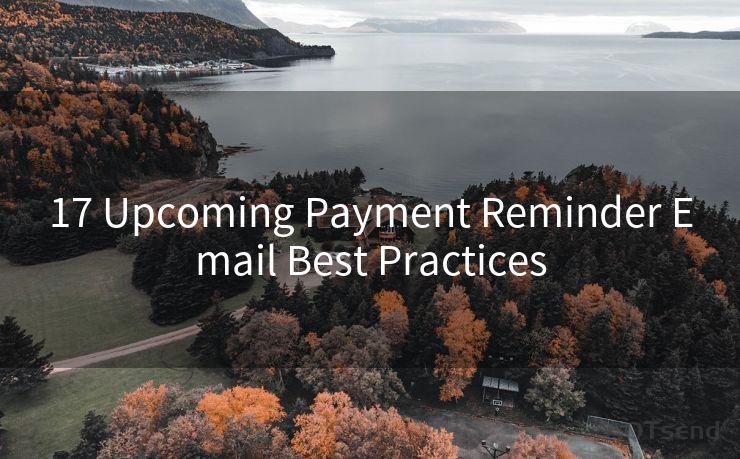17 Upcoming Payment Reminder Email Best Practices




When it comes to managing finances and invoices, payment reminders are a crucial part of the process. Sending timely and effective payment reminders can significantly improve your cash flow and reduce late payments. Here are 17 best practices to keep in mind when crafting an upcoming payment reminder email.
1. Clear and Concise Subject Line
Start with a subject line that clearly states the purpose of the email, such as "Upcoming Payment Reminder for Invoice #XYZ." This helps the recipient understand the email's urgency and content.
2. Personalize the Message
Use the recipient's name and ensure the message is tailored to their specific situation. A personalized email feels less impersonal and more likely to prompt action.

3. State the Purpose Directly
Don't beat around the bush. Begin the email by directly stating that this is a payment reminder and provide the specific invoice details.
4. Include All Relevant Information
Make sure to include the invoice number, date, amount due, and the payment deadline. Provide a link or attachment to the original invoice for easy reference.
5. Use a Friendly Tone
While the email's purpose is serious, maintaining a friendly and professional tone can encourage a positive response.
6. Offer Payment Options
If possible, provide multiple payment methods to make it easier for the customer to pay. Include links or instructions for each method.
7. Highlight Late Fees or Penalties
If late fees or penalties apply, clearly state them in the email. This can serve as a motivator for timely payment.
8. Request Confirmation
Ask the recipient to confirm receipt of the reminder and their intention to pay. This creates a sense of responsibility and urgency.
9. Provide Contact Information
Include your contact information in case the recipient has any questions or needs assistance.
🔔🔔🔔
【AOTsend Email API】:AOTsend is a Managed Email Service for sending transactional emails. Support Email Types: reminders, authentication, confirmations, notifications, verification codes, invoices, password resets, account activations, billing statements, two-factor authentication (2FA), and one-time passwords (OTP) emails, etc. $0.28 per 1000 Emails. 99% Delivery, 98% Inbox Rate.
You might be interested in:
Why did we start the AOTsend project, Brand Story?
What is a Managed Email API, How it Works?
Best 25+ Email Marketing Platforms (Authority,Keywords&Traffic Comparison)
Best 24+ Email Marketing Service (Price, Pros&Cons Comparison)
Email APIs vs SMTP: How they Works, Any Difference?
10. Avoid Spam Triggers
Refrain from using spammy words or excessive capitalization, which can cause your email to be flagged by spam filters.
11. Send at the Right Time
Consider the best time to send the reminder based on the recipient's timezone and work schedule.
12. Follow Up Appropriately
If no response is received, send a follow-up email a few days before the payment deadline.
13. Use Templates Wisely
While templates can save time, ensure you customize them enough to maintain personalization.
14. Test Email Deliverability
Regularly check if your emails are reaching the intended recipients to avoid deliverability issues.
15. Track and Analyze Results
Monitor the effectiveness of your payment reminders by tracking open rates, response rates, and payment conversions.
16. Comply with Legal Requirements
Ensure your emails comply with relevant data protection and e-commerce laws.
17. Continuously Improve
Regularly review and refine your payment reminder strategy based on feedback and analytics.
By following these best practices, you can craft effective upcoming payment reminder emails that encourage timely payments and maintain positive customer relationships. Remember, clear communication and a customer-centric approach are key to successful invoice management.




Scan the QR code to access on your mobile device.
Copyright notice: This article is published by AotSend. Reproduction requires attribution.
Article Link:https://www.mailwot.com/p6892.html



